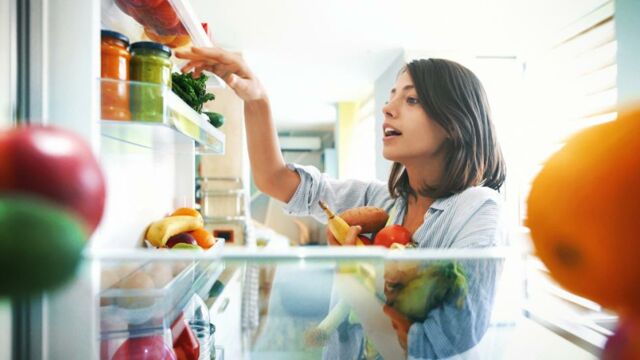Have you just stocked up on vegetables? Well, it’s time to organise and sort them out them before you cook them! But lots of people make little mistakes such as these when it comes to storing them. And here are the five you need to avoid making!
Discover our latest podcast
Keeping them in the fridge
The first thing that most of us do when we buy vegetables is put them straight in the fridge. However, some vegetables shouldn't be stored this way. If they are kept at temperatures which are too cold, they can lose their nutritional benefits. Here are those which should be kept at room temperature:
- Sweet potatoes
- Potatoes
- Tomatoes
- Squashes (pumpkins, butternut squashes…)
Avocados
Putting everything together in the vegetable drawer
The vegetable drawer is aptly named. However, it isn’t suitable for all types of vegetables. Its temperature can vary between 7 and 8 degrees and is ideal for storing some due to the fact they ripen or mature slower than others.
- Artichokes
- Endives
- Peppers
- Radishes
- Carrots
- Celery
However, other vegetables need to be kept at a cooler temperature if you want them to last longer. And because of this, you should put them higher up in the fridge:
- Asparagus
- Aubergines
- Mushrooms
- Cabbage
- Cauliflower
- Courgette
- Turnips
- Leeks
- Salad leaves…
Keeping them in their packaging
Not only is keeping vegetables in their packaging not very hygienic, but it can also affect their quality. Some vegetables give off a gas which makes them go off and if this gas can’t escape, it lingers around the vegetables and makes them go off faster than they should. Therefore, you should take your vegetables out of their packaging before putting them in the fridge.
Cleaning your vegetables
Not all vegetables should be washed or cleaned straight away and then kept for use at a later date. As it turns out, mushrooms, leeks and asparagus should only be cleaned at the last moment, otherwise, they won’t keep well and will wilt.
Mixing them with fruit
Lots of fruits give off ethylene, a gas that makes them go off quicker. When they are stored next to vegetables, this gas can accelerate their ripening process and thus reduces how long they can be kept for by a few days. Therefore, it is better to keep your fruit and vegetables separate. Fruit that this is particularly true for includes bananas, apples, peaches and even pears.















